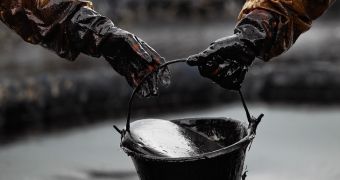This past March 25, BP and the Environmental Protection Agency in the United States announced that a refinery located in Withing, Indiana had leaked a yet-to-be-determined amount of oil into Lake Michigan.
Information made available to the public says that the leak occurred on Monday, and that the oil and gas giant contacted authorities and informed them about the incident on the same day.
Although neither the Environmental Protection Agency nor BP has until now made any official statements concerning how much oil worked its way into Lake Michigan, word has it that the leak was one of about a dozen barrels (1,589 liters).
According to NPR, some of the oil that spilled into Lake Michigan was sweet crude one, i.e. containing less than 0.42% sulfur. Other originated from tar sands in Canada.
On its website, the United States Environmental Protection Agency details that, shortly after being notified with respect to this leak, it instructed oil and gas giant BP to debut cleanup operations.
The company is said to have set in place a 2,000-feet (nearly 610 meters) temporary floating barrier intended to keep the oil from spreading across Lake Michigan.
According to the Agency, the boom worked, and the oil sheen remained confined within the 5,000 square yards (4,180 square meters) that it had come to cover on Monday, in the aftermath of the leak.
“Under EPA oversight, BP has deployed more than 2,000 feet of boom to contain the oil. The US Coast Guard has flown over the area and has not observed any visible sheen beyond the boomed area,” the Agency writes.
Apart from doing their best to contain the oil sheen, BP workers have until now removed about 5,200 gallons (19,684 liters) of oil and water from the location of the spill.
Besides, specialists are busy monitoring local air quality and inspecting a nearby beach for oil globs so as to ensure that human communities in Lake Michigan's proximity will not be affected by the spill.
Presently, neither the Environmental Protection Agency nor BP can say how long it will take to clean up the spill, and how much money will have to be spent on ridding Lake Michigan of nearly all traces of oil.
Specialists with the Agency reassure that, according to their investigations, Lake Michigan can still serve as a water source for the general public, Think Progress informs.
Although oil and gas giant BP is yet to offer a detailed explanation concerning what caused this leak to occur, it would appear that the incident was the result of what the company has labeled a disruption in the refining process.

 14 DAY TRIAL //
14 DAY TRIAL //